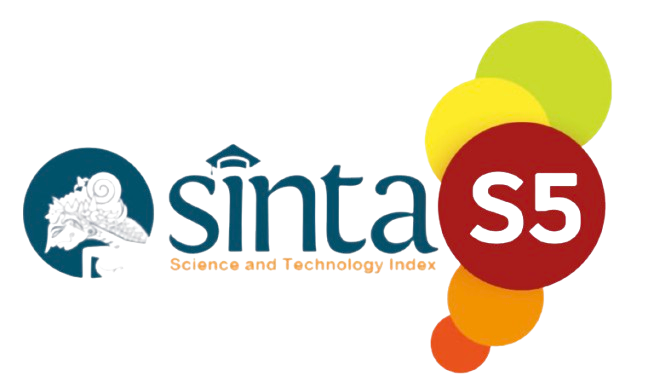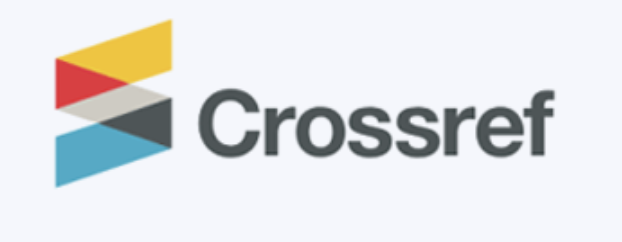Implementation of the Flipped Classroom Learning Model to Improve Students' Language Skills at MI Miftahul Jannah
DOI:
https://doi.org/10.52217/ijlhe.v8i1.1767Keywords:
Flipped classroom, Language proficiency, Learning motivation, Madrasah Ibtidaiyah, Qualitative researchAbstract
This study examined the effectiveness of the flipped classroom model in improving language proficiency among 20 fourth-grade elementary students at MI Miftahul Jannah, Kedung Supit. The flipped classroom approach allows students to independently review materials before class, maximizing in-class time for interactive and collaborative learning. Employing a qualitative research design with experimental pre-test/post-test components and descriptive methods, data were collected via observations and interviews. Analysis involved data reduction, presentation, and conclusion drawing. Language proficiency assessments and motivation questionnaires served as instruments. Results showed the flipped classroom significantly enhanced students' language abilities, particularly in speaking and writing, and fostered greater enthusiasm and engagement. The model’s implementation involved three phases: pre-class material review using worksheets; in-class discussions and exercises guided by the teacher; and post-class formative assessments. A notable improvement in listening and speaking skills was observed. Previously, students struggled with main ideas, new vocabulary, and expressing opinions due to time and improper language use. After adopting the flipped classroom, 15 of 20 students demonstrated significant progress, outperforming traditional methods. Furthermore, motivation questionnaires indicated increased student drive. This research confirms the flipped classroom as an effective strategy for boosting elementary language proficiency and offers a valuable resource for innovative teaching practices.
References
Abdussamad, H. Z., & M. S. S. (2021). Metode penelitian kualitatif. CV. Syakir Media Press.
Adnyana, I. K. S. (2022). Mewujudkan profil pelajar Pancasila melalui pembelajaran bahasa dan sastra. Pedalitra: Prosiding Pedagogi, Linguistik, dan Sastra, 2(1), 28–36. https://ojs.mahadewa.ac.id/index.php/pedalitra/article/view/2300
Andewi, W., & Hastomo, T. (2022). Effect of using flipped classroom for teaching writing based on students' motivation: A quasi-experimental research. Premise: Journal of English Education and Applied Linguistics, 11(3), 615–631. http://dx.doi.org/10.24127/pj.v11i3.5511
Andrini, V. S., Pratama, H., & Maduretno, T. W. (2019). The effect of flipped classroom and project based learning model on student’s critical thinking ability. Journal of Physics: Conference Series, 1171, 012010. https://doi.org/10.1088/1742-6596/1171/1/012010
Bangun, W. A., & Naphiah, S. (2021). Project Based Learning dengan desain flipped classroom tipe peer instruction flipped untuk meningkatkan ketrampilan berpikir kritis dan literasi sains. JURNAL PAJAR (Pendidikan dan Pengajaran), 5(2). https://doi.org/10.33578/pjr.v5i2.8214
Chandra, F. H., & Nugroho, W. (2016). Peran teknologi video dalam flipped classroom. Dinamika Teknologi, 8(1), 15–20.
Daga, A. T. (2021). Makna Merdeka Belajar dan penguatan peran guru di sekolah dasar. Jurnal Educatio FKIP UNMA, 7(3), 1075–1090. https://doi.org/10.31949/educatio.v7i3.1279
Farida, R., Alba, A., Kurniawan, R., & Zainuddin, Z. (2019). Pengembangan model pembelajaran flipped classroom dengan taksonomi Bloom pada mata kuliah sistem politik Indonesia. Kwangsan: Jurnal Teknologi Pendidikan, 7(2), 104–122. https://jurnalkwangsan.kemdikbud.go.id/index.php/jurnalkwangsan/article/view/130/1000
Hastomo, T., Sari, A. S., Widiati, U., Ivone, F. M., Zen, E. L., & Andianto, A. (2025). Exploring EFL teachers’ strategies in employing AI chatbots in writing instruction to enhance student engagement. World Journal of English Language, 15(7), 93–102. https://doi.org/10.5430/wjel.v15n7p93
Herlina, E., Gatriyani, N. P., Galugu, N. S., Rizqi, V., Mayasari, N., Nurlaila, Q., Rahmi, H., Cahyati, A., Wahyudi, W., Ratnadewi, R., Azis, D. A., & Saswati, R. (2022). Strategi pembelajaran. TOHAR MEDIA.
Kamaruddin, I., Darmawati, L. E. S., Sudirman, S., & Handayani, E. S. (2022). Pengaruh Project Based Learning (PjBL) dengan strategi flipped classroom terhadap pemahaman dan berpikir kritis siswa. Al-Mada: Jurnal Agama, Sosial, dan Budaya, 5(3). https://doi.org/10.31538/almada.v5i3.2562
Kusumastuti, A., & A. M. K. (2019). Metode penelitian kualitatif. Lembaga Pendidikan Sukarno Pressindo (LPSP).
Mandasari, B., Basthomi, Y., Hastomo, T., Afrianto, Hamzah, I., & Aminatun, D. (2025). The snapshots of Indonesian pre-service English teachers’ perspectives on integrating technology-based tools to rural schools. Voices of English Language Education Society, 9(1), 42–57. https://doi.org/10.29408/veles.v9i1.27965
Mirdad, J. (2020). Model-model pembelajaran (Empat rumpun model pembelajaran). Jurnal Sakinah, 2(1), 14–23. https://doi.org/10.2564/js.v2i1.17
Nartin, S. E., Faturrahman, S. E., Deni, H. A., Santoso, Y. H., Paharuddin, Suacana, I. W. G., Indrayani, E., Utama, F. Y., Tarigan, W. J., & Eliyah. (2024). Metode penelitian kualitatif. Cendikia Mulia Mandiri.
Pudjianto, U., Saurina, N., Hadi, F., & Adisusilo, A. K. (2021). Meningkatkan motivasi belajar menggunakan metode pembelajaran flipped classroom. Jurnal Pendidikan dan Ilmu Pengetahuan, 21(1), 86–93. https://doi.org/10.30651/didaktis.v21i1.4658
Rahmadani, L., Fadilah, M., Darussyamsu, R., Fitri, R., & Farma, S. A. (2022). Analisis penerapan flipped learning dalam pembelajaran. Journal on Teacher Education, 3(3), 381–387. https://doi.org/10.31004/jote.v3i3.4984
Ramadhan, I., Manisah, A., Angraini, D. A., Maulida, D., Sana, S., & Hafiza, N. (2022). Proses perubahan pembelajaran siswa dari daring ke luring pada saat pandemi Covid-19 di Madrasah Tsanawiyah. EDUKATIF: Jurnal Ilmu Pendidikan, 4(2), 1783–1792. https://doi.org/10.31004/edukatif.v4i2.2200
Roosinda, F. W., Lestari, N. S., Utama, A. G. S., Anisah, H. U., Siahaan, A. L. S., Islamiati, S. H. D., Astiti, K. A., Hikmah, N., & Fasa, M. I. (2021). Metode penelitian kualitatif. Zahir Publishing.
Sari, I. N., Lestari, L. P., Kusuma, D. W., Mafulah, S., Brata, D. P. N., Karwanto, Supriyono, Iffah, J. D. N., Widiatsih, A., Utomo, E. S., Maghfur, I., Sofiyana, M. S., & Sulistiana, D. (2022). Metode penelitian kualitatif. Unisma Press.
Utomo, F. T. S. (2023). Inovasi media pembelajaran interaktif untuk meningkatkan efektivitas pembelajaran era digital di sekolah dasar. Pendas: Jurnal Ilmiah Pendidikan Dasar, 8(2), 3635–3645. https://doi.org/10.23969/jp.v8i2.10066
Yahya, R., Ummah, S. K., & Mahfud, M. (2020). Pengembangan perangkat pembelajaran flipped classroom bercirikan mini-project. SJME (Supremum Journal of Mathematics Education), 4(1), 78–91. https://doi.org/10.35706/sjme.v4i1.3136
Zisca Diana, P. (2020). Collaborative learning dalam pembelajaran Bahasa Indonesia. Universitas Muhammadiyah Kotabumi.














